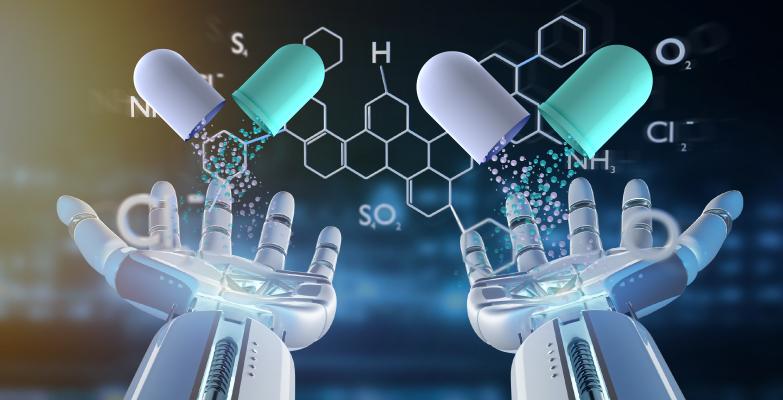
AI Revolutionizes Drug Discovery: Unveiling New Cures FasterAI Revolutionizes Drug Discovery: Unveiling New Cures Faster The pharmaceutical industry has long been mired in the slow and arduous process of drug discovery. However, artificial intelligence (AI) is now poised to revolutionize this process, promising to accelerate the development of new cures and improve the efficacy of existing treatments. Accelerated Discovery Process AI algorithms can sift through vast amounts of data pertaining to diseases, genetic profiles, and chemical compounds. This allows researchers to identify potential drug candidates more efficiently and accurately. AI can also simulate molecular interactions and predict drug efficacy, eliminating the need for costly and time-consuming animal testing. Improved Drug Efficacy AI algorithms can optimize drug design by tailoring treatments to specific genetic profiles and disease subtypes. By predicting the interactions between drugs and biological systems, AI can help researchers identify promising lead compounds with minimal side effects and optimal potency. Precision Medicine AI is enabling the development of personalized medicine by providing insights into each individual’s unique genetic makeup and disease risk. This information can help doctors tailor treatment plans to the specific needs of each patient, increasing effectiveness and minimizing adverse reactions. Enhanced Clinical Trials AI algorithms can analyze clinical trial data more efficiently, identifying trends and patterns that may not be apparent to human researchers. This can lead to improved patient selection and more accurate evaluation of drug efficacy. Additionally, AI can help automate tasks such as data entry and analysis, freeing up researchers to focus on scientific insights. Ethical Considerations While the potential benefits of AI in drug discovery are immense, it is crucial to address ethical considerations. AI algorithms require access to large datasets, and it is important to ensure patient privacy and consent. Additionally, AI should be used as a tool to augment human expertise rather than replace it entirely. Conclusion AI is transforming drug discovery, offering the promise of faster, more efficient, and more effective treatments. By accelerating the identification of promising drug candidates, predicting drug efficacy, and enabling precision medicine, AI is poised to revolutionize the healthcare landscape and improve the lives of millions of patients. As this technology continues to advance, it is essential to navigate the ethical implications and ensure that AI is used responsibly and ethically for the benefit of humanity.
Posted inNews